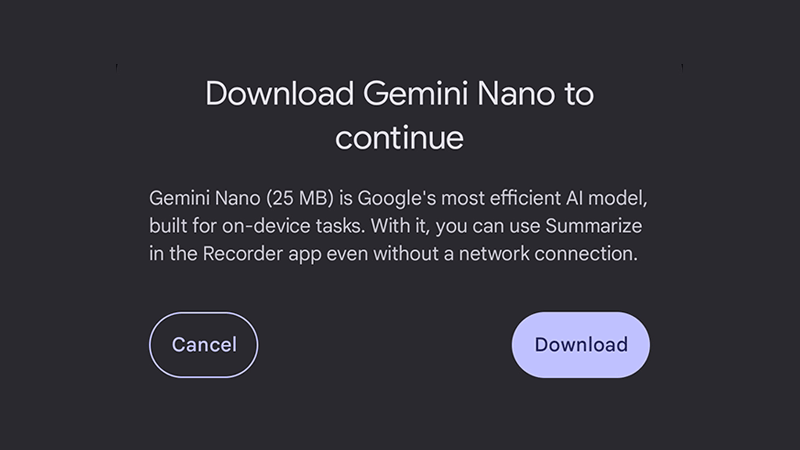
Large Language Models are like hyper-intelligent digital brains trained on massive amounts of text data—books, websites, code, articles, and more.
They're designed to understand and generate human language in a way that's eerily natural. Think of them as glorified, endlessly chatty librarians that read everything and forget nothing. They’re powered by deep learning, specifically a neural network architecture called the Transformer—which is what lets them understand context, nuance, and even sarcasm.
But to have that ability, models like the earliest version of OpenAI's ChatGPT require substantial computational resources.
Training the AI, which created this LLM hype, consumed more than a thousand megawatt-hours of electricity, or equivalent to the annual energy consumption of a few hundred homes.
Tech giant Google, has what it calls Gemini, an LLM that also hunger for resources.
Given the resource-intensive nature of LLMs, there's a significant push to develop smaller, more efficient models suitable for edge computing and mobile devices.
And here, Google Gemini Nano is a compact, on-device AI model designed to bring generative AI capabilities directly to Android devices, ensuring privacy, low latency, and offline functionality.
It's part of Google's broader Gemini family, which includes larger models like Gemini Pro and Ultra that operate in the cloud.
Soon we’re adding multimodal capabilities to Gemini Nano. That means your phone can understand the world the way you understand it, through text, sights, sounds and spoken language. #GoogleIO pic.twitter.com/9QOPmbX98V
— Google (@Google) May 14, 2024
With the rise of generative AI has reshaped how Google approach its product development, the company is preparing to give developers new tools to bring generative AI directly to users’ fingertips—without needing to connect to the cloud.
Here, Google has quietly revealed a new set of APIs tailored for on-device AI, powered by Gemini Nano, the company’s lightweight generative model.
With it, Google wants to change the rules of the playing field.
Whereas most AI features users interact rely on powerful cloud-based infrastructure. Google wants Google Gemini Nano to bring LLM computing capabilities to mobile devices.
According to reports, Google is integrating these APIs will be integrated into the ML Kit SDK, offering developers easy access to on-device generative AI functions.
Built on top of AI Core—Google's system layer for handling local model execution—this approach differs from the experimental Edge AI SDK by offering predefined, plug-and-play capabilities optimized for mobile use.
With these tools, apps will be able to perform tasks like text summarization, grammar checking, rephrasing, and generating image descriptions—all processed locally on the device.
This not only enhances performance and responsiveness but also helps protect user privacy by keeping data off the cloud.
That said, the on-device model doesn’t pack the same punch as its cloud-based siblings.
For example, Google notes that summaries will be limited to three bullet points, and image descriptions will initially be restricted to English. Performance will also vary depending on which version of Gemini Nano is running. The more capable Gemini Nano XS, roughly 100MB in size, supports a broader range of functions. Meanwhile, the ultra-compact Nano XXS, found on budget-friendly phones like the Pixel 9a, is just a quarter of that size and limited to text-based features with a smaller context window.
All told, Gemini Nano is a major step forward in mobile AI, allowing developers to build smarter, faster, and more privacy-focused apps—without needing to tap into the cloud.
Gemini Nano Is Paving the Way for Smarter, More Private Android AI
Google’s continued investment in on-device AI is about to pay off in a big way—and not just for Pixel owners.
Traditionally, Google Pixel lineup is often the testing ground for Google's latest AI advancements. But Gemini Nano is set to benefit a broader swath of Android devices.
Devices like the OnePlus 13, Samsung Galaxy S25, and Xiaomi 15 are already poised to support Gemini Nano. With this growing hardware ecosystem, developers will soon have more opportunities to integrate local AI capabilities into their apps—bringing smarter features to more users without needing a constant internet connection.
With the documentation for these APIs is already live, Google is giving developers an early look into what the company is brewing.
Even though on-device models like Gemini Nano are less powerful than their cloud-based counterparts, they bring a critical advantage: privacy. With no data leaving the device, sensitive user information can be processed securely. It’s a shift users are likely to welcome.
For example, features like Pixel Screenshots already analyze images locally, keeping all activity private.
There was a huge downside, and Google acknowledges this.
Building AI-enhanced apps on Android tends to be fragmented and frustrating. Google’s AI Edge SDK provides access to the Neural Processing Unit (NPU) on supported devices, but it's still in an experimental phase and limited to the Pixel 9 series. Worse, it's restricted to text-only tasks. Chipmakers like Qualcomm and MediaTek offer their own AI APIs, but differences in features, performance, and implementation across devices make them risky for long-term development.
Running a custom generative model locally is even more complex—it demands deep knowledge of AI frameworks and hardware optimization.
Google wants to address this with Gemini Nano APIs, which promise to simplify everything: developers get out-of-the-box support for natural language tasks without the heavy lifting.
If Google manages to make this APIs widely adopted, the framework could bring long-overdue consistency to Android's AI story.
But then, there is yet another issue: it all depends on the cooperation between Google and OEMs. While some manufacturers may opt in, others could stick to their own solutions—or ignore on-device AI altogether due to hardware constraints.
Even so, Gemini Nano represents a crucial step toward more ubiquitous, privacy-friendly AI.
By lowering the barrier to entry, Google is giving developers a powerful new way to bring smarter, more responsive features to the Android ecosystem—no cloud required.
And lastly, by bringing Gemini Nano to Android, Google is able to bring a smarter, more private AI on mobile phones, way ahead of Apple, its main rival in the smartphone business.
